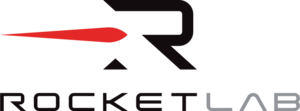Rocket Lab USA, Inc. (Nasdaq: RKLB) (“Rocket Lab” or “the Company”), a leading launch and space systems company, successfully launched seven satellites for NASA, Space Flight Laboratory and Spire Global from Launch Complex 1 in New Zealand today at 13:27 NZST .
The Baby Come Back mission was Rocket Lab’s seventh launch for the year and the Company’s 39th Electron launch overall. In addition to delivering a flawless primary mission of deploying customer satellites to orbit, Rocket Lab completed a successful ocean splashdown and recovery of Electron’s first stage as part of the Company’s program to make Electron the world’s first reusable small rocket. Around 2.5 minutes after lift-off, at an altitude of almost 75 km, Electron’s first stage separated from the second stage as planned. While the second stage continued onto orbit to deploy the seven satellites on board, Electron’s first stage began the journey back to Earth at speeds of more than 9,000 km per hour, reaching temperatures of 2,400 Celsius. At around 8.5 minutes after lift-off, the first stage successfully deployed a main parachute slowing its descent, enabling a soft splashdown in the Pacific Ocean. From there, Rocket Lab’s recovery team rendezvoused with the stage on the water, successfully bringing it onto a vessel using a specially designed capture cradle. The stage is now enroute back to Rocket Lab’s production complex for analysis ahead to inform future recovery missions, and eventually re-flight of an Electron.
“We’re delighted to have delivered yet another successful Electron mission and would like to thank the teams at Space Flight Laboratory, Spire Global, and NASA, for entrusting us with their innovative science and tech demonstration missions,” said Rocket Lab founder and CEO Peter Beck. “With this mission we’ve made big strides toward reusability with Electron and we are now closer than ever to relaunching a booster for the first time.”
Satellites launched on Baby Come Back:
NASA: NASA’s Starling mission is a four CubeSat mission designed to advance technologies for cooperative groups of spacecraft – also known as swarms. Spacecraft swarms refer to multiple spacecraft autonomously coordinating their activities in orbit. Once positioned in orbit around Earth and spaced about 40 miles / 64 km apart, Starling’s spacecraft will demonstrate the ability to autonomously fly together while keeping track of each other’s relative positions and trajectories. They also will demonstrate the ability to plan and execute activities as a group, without guidance from mission controllers, including responding to new information from onboard sensors. Starling’s spacecraft also will demonstrate creating and maintaining an inter-spacecraft communications network that automatically adjusts to changing conditions. NASA’s Starling mission will test whether the technologies work as expected, what their limitations are, and what developments are still needed for CubeSat swarms to be successful. Starling is funded by NASA’s Small Spacecraft Technology program based at NASA’s Ames Research Center in California’s Silicon Valley and within the agency’s Space Technology Mission Directorate in Washington.
Space Flight Laboratory (SFL): Space Flight Laboratory (SFL) selected Rocket Lab to launch Telesat’s LEO 3 demonstration satellite that will provide continuity for customer and ecosystem vendor testing campaigns following the decommissioning of Telesat’s Phase 1 LEO satellite. LEO 3 will serve an important role for low-latency customer applications testing, and for supporting LEO antenna and modem development efforts in advance of the Telesat Lightspeed network deployment.
Spire Global: Spire launched two 3U satellites carrying Global Navigation Satellite System Radio Occultation (GNSS-RO) payloads to replenish its fully deployed constellation of more than 100 multipurpose satellites. Spire’s satellites observe the Earth in real time using radio frequency technology. The data acquired by Spire’s GNSS-RO payloads provide global weather intelligence that can be assimilated into weather models to improve the accuracy of forecasts.
Rocket Lab is preparing to launch its 40th Electron mission before the end of the month, with mission details to be released in the coming days.
ABOUT Rocket Lab

Founded in 2006, Rocket Lab is an end-to-end space company with an established track record of mission success. We deliver reliable launch services, satellite manufacture, spacecraft components, and on-orbit management solutions that make it faster, easier and more affordable to access space. Headquartered in Long Beach, California, Rocket Lab designs and manufactures the Electron small orbital launch vehicle, the Photon satellite platform and the Company is developing the large Neutron launch vehicle for constellation deployment. Since its first orbital launch in January 2018, Rocket Lab’s Electron launch vehicle has become the second most frequently launched U.S. rocket annually and has delivered 170 satellites to orbit for private and public sector organizations, enabling operations in national security, scientific research, space debris mitigation, Earth observation, climate monitoring, and communications. Rocket Lab’s Photon spacecraft platform has been selected to support NASA missions to the Moon and Mars, as well as the first private commercial mission to Venus. Rocket Lab has three launch pads at two launch sites, including two launch pads at a private orbital launch site located in New Zealand and a third pad in Virginia.